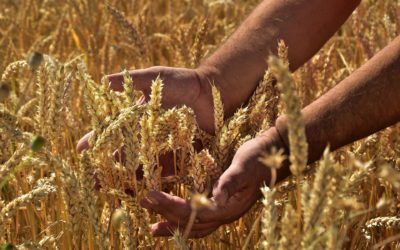Farmers are encouraged to closely read new grain declarations for the 2020-21 grain year following recent changes which now include a legally binding agreement as required by the Canadian Grain Commission (CGC), a news release from Alberta Wheat and Barley Commissions, says on Aug. 5.
“This change adds an additional level of liability that farmers need to be aware of. Grain declarations have always been contractual agreements between the farmer and the grain company, but now we have a regulatory requirement that could result in legal ramifications,” Todd Hames, Alberta Wheat Commission chair, says in the release.
In many cases, the legally binding declaration required by the CGC is included as Part B of the annual contractual declaration required by grain companies to ensure farmers’ grain is eligible for delivery. While most grain deliveries have required similar declarations in the past, as of August 1 2020 all regulated grains which are delivered to CGC licensed elevators or processors require a declaration, the release notes.
These changes require farmers to declare that grain being delivered is of a variety eligible for the kind of grain and class, and are the result of recent amendments to the Canada Grain Act. The change extends to all deliveries of grains regulated under the Canada Grain Act, and knowingly making a false declaration is considered an offence under the Act, the release says.
The changes follow concessions made under the Canada-United States-Mexico Agreement (CUSMA) which allow American farmers to sell eligible classes and varieties of wheat into Canada. Rather than introducing a regulatory contract specific to the sale of wheat, the CGC has extended the regulations to cover all grain sales.





